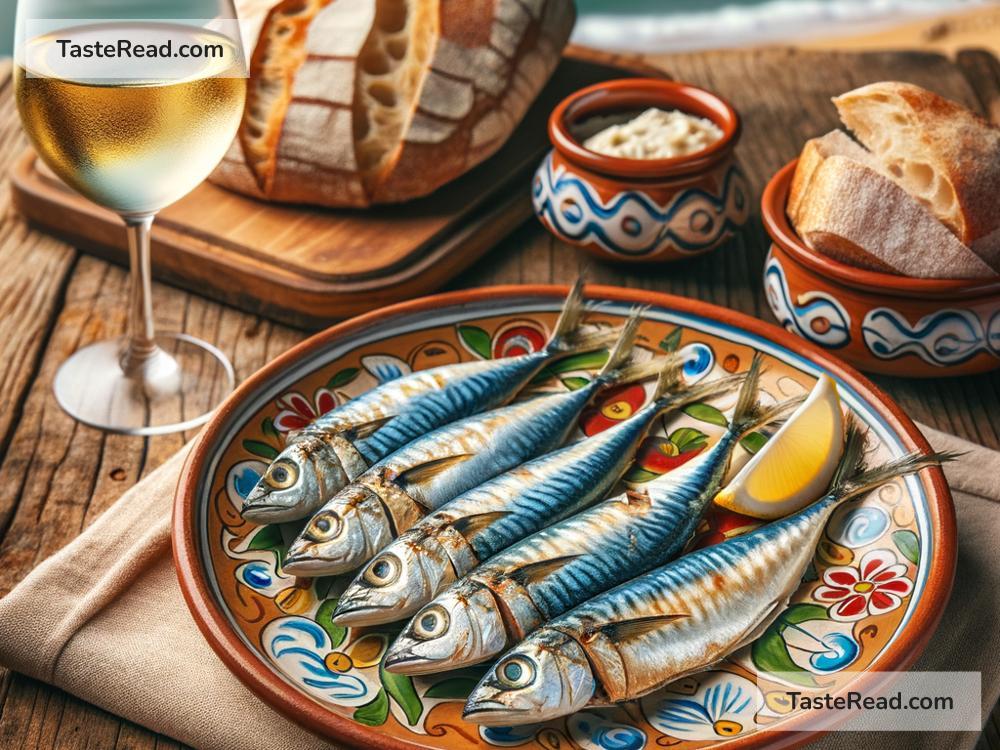Exploring the Role of Sardines in Portuguese and Mediterranean Dishes
Sardines are small fish with a big impact on Portuguese and Mediterranean cuisine. These tiny, oily fish are more than just a simple dish — they’re a cultural icon, a historical staple, and a flavorful addition to many recipes. If you’re curious about how sardines have made their way into the kitchens and onto the plates of so many, you’re in for a tasty journey!
Sardines: A Little Background
Sardines are small, oily fish that are typically found in the Atlantic Ocean and the Mediterranean Sea. They have been part of the human diet for centuries, dating back to times when preserving food was a matter of survival. The great thing about sardines is how they’re prepared and preserved — often packed in oil, salted, or smoked, which adds layers of flavor.
The Anchovy of Portuguese Cuisine
In Portugal, sardines are more than just food; they’re part of the nation’s soul. Here, sardines are often grilled to perfection, with the skin getting a little charred, which adds an incredible smoky flavor. Any walk through the streets of Lisbon or Porto in sardine season (mostly summer) will lead you to this mouthwatering aroma. Paired with a simple salad, a slice of crusty bread, and a glass of vinho verde (a young Portuguese wine), grilled sardines make for a heavenly meal.
But it’s not just about the grilling. In Portugal, sardines find their way into countless dishes, from the traditional “Caldeirada” (a kind of fish stew) to being preserved in cans with beautiful, collectible designs. These canned sardines aren’t like what you might picture – they’re a gourmet item, often aged like fine wine and prized for their flavor.
A Mediterranean Marvel
Across the Mediterranean, sardines play a similarly significant role. Their versatility and availability have made them a staple in the diet of many countries bordering this sea. In Moroccan cuisine, for instance, sardines are stuffed with a spicy chermoula paste, coated in a crispy batter, and then fried to golden perfection. It’s a dish full of flavors and textures that can make your taste buds dance.
In Italy, sardines are part of the famous dish “Pasta con le Sarde”, where they’re mixed with wild fennel, raisins, and pine nuts in a delightful pasta dish, showcasing the Italian skill of creating complex flavors from simple ingredients. Over to Greece, sardines are often grilled or marinated, serving as a perfect meze (a kind of appetizer) that pairs wonderfully with ouzo or tsipouro.
Nutrition Powerhouse
Beyond their delicious taste and cultural significance, sardines are incredibly good for you. They’re packed with omega-3 fatty acids, which are beneficial for heart health. They’re also a great source of vitamin D, calcium (from their edible bones), and protein. This combination of nutrients makes sardines not just a tasty option, but a smart one for those looking to add more healthy foods to their diet.
Sustainable Choice
In today’s world, where overfishing is a real concern, sardines emerge as a sustainable choice. They reproduce quickly and are abundant in their natural environments, making them less likely to face the pressures that bigger fish do. By choosing sardines, you’re not just treating yourself to a delicious meal, but you’re also making a choice that’s better for our oceans.
Incorporating Sardines Into Your Diet
If you’re new to sardines, there are countless ways to start enjoying them. You can begin with something simple, like adding canned sardines to a salad or on top of your favorite crackers. If you’re feeling adventurous, try making a sardine pasta or even grilling fresh sardines if you can find them. The key is to experiment and find what works for you. Sardines have a distinct, rich flavor that can enhance a variety of dishes.
In Conclusion
Sardines might be small, but their impact on Portuguese and Mediterranean cuisine is immense. They’re a testament to the idea that good things come in small packages, offering a combination of rich flavor, cultural significance, nutritional benefits, and sustainability. Whether grilled, canned, or incorporated into complex dishes, sardines have secured their place at the table for centuries to come. So, the next time you’re looking to try something new, consider the humble sardine – it might just surprise you with its versatility and depth of flavor.


